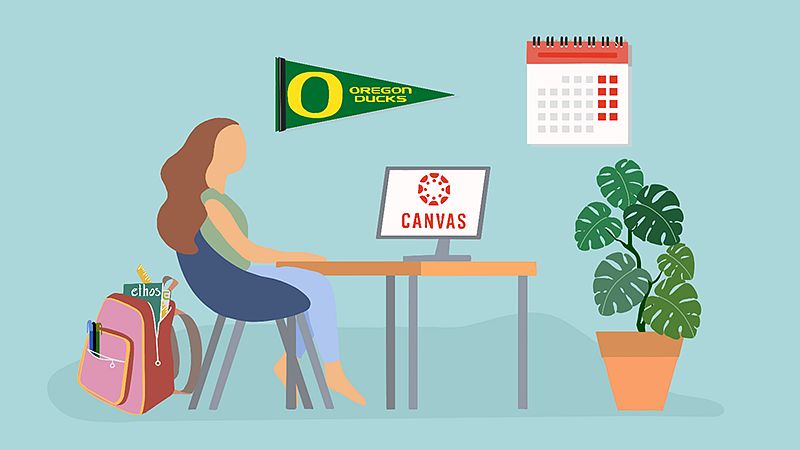
As a second-year public relations major, I have finally begun to figure out how to make the most of the rhythms of the academic year. The beginning of each term is a chance to start fresh and come back renewed after a break. But resuming a rigorous course load after that well-deserved time away can also be a shock to my system. If you're anything like me, you neglect all semblance of structure and obligation during breaks. It should be that way — we need time to recharge!
Although getting back into a routine when the term starts is far from easy, I have found that it can be extremely rewarding to begin achieving my goals again. Here is how I set myself up for success each term.
1. Get into a routine.
Balancing all the demands of the term — social life, extracurricular activities, work and a full course load — can be taxing. You might not think you thrive with a strict schedule, but routines can help maintain stability in times of stress and uncertainty. Implementing a structure can improve your focus and productivity by generating a sense of control.
Cultivating a routine begins with assessing what you feel is important and fulfilling. For me, staying on top of my school work ranks highest in priority, and implementing daily movement makes me feel fulfilled. Being clear about my priorities ensures I carve out ample time in my schedule to cover my non-negotiables.
With so much on your plate, compromising sleep may feel like the only way to accomplish your goals. But sleep deprivation has negative consequences on your concentration, grades and mental health. Before your first day of class, practice going to bed and waking up at the same time. Your mind and body will thank you!
2. Read the syllabus.
You’ve heard it a thousand times. But only because it is paramount to your course success! Read the syllabus prior to the first day of each class and pay attention to course expectations, grade breakdowns and the attendance policy. Making note of office hours and important deadlines will help you establish a study routine.
Digital or paper — you have to find the organization strategy that works for you. I organize all my assignment deadlines on Google Sheets. This increases my awareness of upcoming work and helps me formulate a weekly to-do list. Here is how I do it:
- Open Google Sheets and create a three-column table. Label column A “Course,” column B “Assignment” and column C “Due Date.”
- Using your syllabus, record the due date for each assignment and exam in your spreadsheet.
- Assign a “fill color” to each class to create a color-coded key.
- Click on column C. Go to “Data,” then “Sort Sheet.” Select “Sort Sheet by Column C (A to Z).” Now all of your assignments are in chronological order by the due date!
- Add borders around each week in your spreadsheet.
3. Meet your professors.
Professors are here to help you, not hurt you. They are great resources for connecting you with alumni, providing recommendations and giving you the tools to succeed in your future career. Introducing yourself to your professor is a great first step in establishing a relationship. It doesn’t have to be a long conversation; tell your professor who you are, why you’re in the class and what you hope to learn. Making your concerns known early on will help your professors and graduate employees (GEs) serve you accordingly.
One of the biggest mistakes you can make is procrastinating on that first meeting until you get a bad grade or need an extension. Starting your relationship on the first day of class will help you feel more confident when asking future questions. Communication is key! Make an effort to stay in touch and show your engagement throughout the course.
4. Establish new connections.
It might feel intimidating to join a new club or student organization in the middle of the term. That is why the start of the term is the best time to discover new ways to get involved! The University of Oregon offers student clubs and organizations that provide opportunities to meet diverse individuals who challenge your outlook. School of Journalism and Communication students can participate in a range of student-run agencies, publications and clubs. This is a great way to enhance your portfolio with professional work produced through hands-on learning. Whichever route you choose to take, find an organization that piques your interest!
Building strong and diverse connections as an undergrad will become indispensable in your post-grad endeavors. Your network is your catalyst for building your future career. It’s important to have people in your circle who can answer your questions, share wisdom and become your support system. Reach out to someone new this term! You might meet a new study buddy — or you might meet your future boss.
— Whitney Conaghan, class of ’24
Whitney Conaghan, class of ’24, is a public relations major and multimedia minor. She is currently working as an events and social media intern for the SOJC’s Communication Team.
